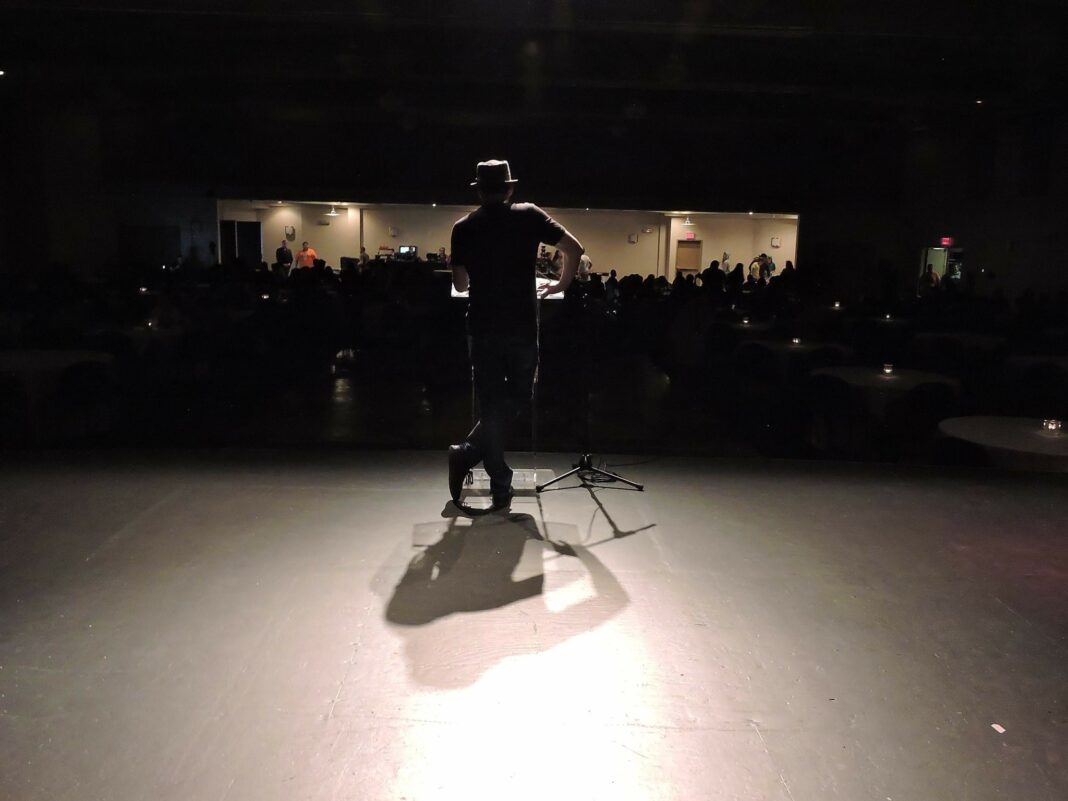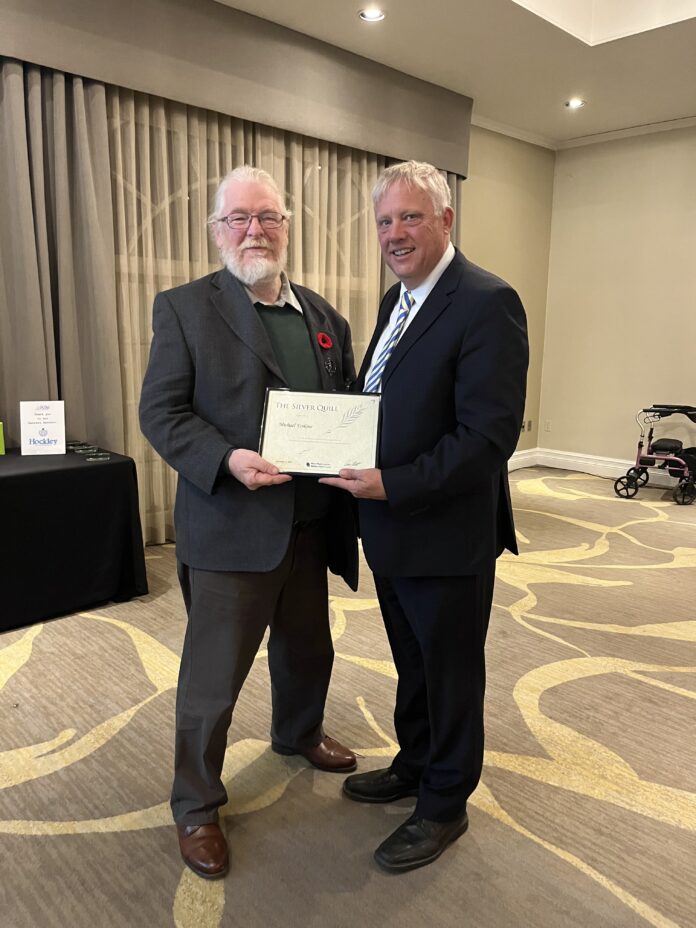Renowned mentors George Couchie and Glen Gould will attend as keynote speakers
LITTLE CURRENT—Noojmowin Teg is hosting a two-day gathering on Indigenous men’s wellness on Tuesday, November 14 and Wednesday, November 15. The event will be held at the Manitoulin Conference Centre and features keynote speakers George Couchie of the Red Tail Hawk Clan from Nipissing First Nation and Glen Gould of the Membertou First Nation.
Mr. Couchie is a retired police officer with 32 years of service and a published author who wrote three books: ‘Raised on an Eagle Feather,’ ‘Creation of the Spark’ and ‘The Gifts of the Seven Grandfathers.’ He has also delivered award-winning Indigenous Awareness Trainings and Initiatives, including The Niigan Mosewak Program for Indigenous youth aged 12-17. Close to 150 kids are invited to the culture camp that delivers powerful messages of hope by encouraging positive and healthy lifestyle choices.
Glen Gould is an acclaimed actor, producer and director with a prolific career in theatre, film and television. His powerful performances have garnered him critical acclaim and awards such as the Best Actor Award at the 2015 RNCI Awards, 2014 AIMPA’s, Best Actor Nomination at the 2014 and 2020 RNFCI Festival, Dreamspeaker Film Festival, and at the esteemed David Renton Award for Outstanding Performance by an Actor at the AIFF.
Mr. Gould has known tragedy and mental health struggles of his own. Early in his career, the loss of his best friend to suicide was bookended by the death of his grandfather and the loss of both parents in a car accident. “I was messed up for a while over that,’ he said. “When Colin died, I thought, ‘why him and not me?’” He turned instead to the big drum and a song that had come to him in a vision. At the time, he didn’t know that the song was the Mik’maw Honour song that the church had banned.”
“While my buddies and I were practicing in the school gym, the nun came in and told us we had to ask permission from the priest to play at the funeral,” Mr. Gould recalls. The group of young men had a pickup truck donated and led the funeral procession while drumming for their friend instead. “I thought to myself, ‘no, we aren’t going to ask permission; they never asked us for permission when they came and took our culture away’.”
Today, the Honour Song is played at every Mik’maw funeral on Membertou First Nation.
The rationale for developing a program of services by and for Indigenous men in a First Nations community was published in AlterNative: An International Journal of Indigenous Peoples in 2019. Canada’s Mental Health Strategy recognizes the disproportionate mental health and wellness crises that the Indigenous community faces, such as elevated risk of suicide and self-injury, yet the strategy does not address gender. The participants in the study identified several challenges with mental health, substance misuse and violence issues related to the effects of colonization, loss of language, cultural identity and spirituality.
The impacts of the residential school system created a lack of mentoring and traditional teachings in their early years. Programs like the Men’s Two-Day Indigenous Wellness Gathering are essential because of financial and systemic barriers such as racism and discrimination that Indigenous men face when seeking support and services. The program addresses the needs of Indigenous men by providing culturally safe practices. It is focused on traditional Indigenous lifeways and individual, community and family strength to overcome the effects of intergenerational trauma.
“Aboriginal people were targeted to be destroyed,” said George Couchie in his video, Cultural Mindfulness. “And who we are now is not who we are. When we talk about our communities, most of the time, we only see the behaviors on the news, complaining or dying or dead.”
“An anthropologist told me one time that once you lose your culture, most of the time, it will be filled with alcohol and drugs,” Mr. Couchie continued. “And in our community, we have lost our culture. My father was a residential school survivor, and I had asked him when I was a little kid, ‘Why didn’t you ever teach us how to speak the language?’ he said, ‘Why would I put you through the same thing that I went through? You don’t need to learn that language.’ And really, I did need to learn that language. And when I was a kid, the last thing we wanted to be was Anishinaabe. We were embarrassed about who we were.”






